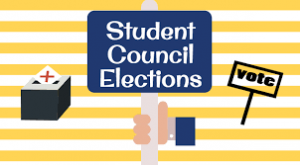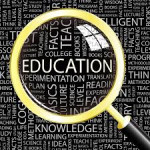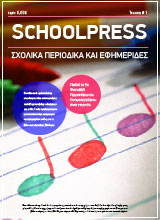Greek educational system
Overall assessment of the Greek educational system
Over the years, the education system in Greece has undergone reforms to keep up with the other education systems in the world. Despite these efforts, the country faces many challenges in its education sector.
- The majority of teachers in public schools don’t use ICT in their teaching practice. Its use is usually haphazard and often characterized by being used as a diversion, entertainment or reward for the students. They do not feel confident when they use computers in the classroom with students. They also use a small range of teaching strategies which they choose depending on the topic at hand and the students they are working with. They prefer to stick to methods and tools they know, rather than experiment with new ones. They rarely try new teaching and learning approaches, methods and tools in the classroom. They also rarely give different tasks to students who have difficulties and they don’t spend more time with them than with those who advance faster. They lead all lessons, which are mainly focused on transmitting knowledge to students. They sometimes implement collaborative learning, allowing for student-led discussion and group work. They usually teach the same way, based on their experience of what works well. They hardly organise collaborative activities with the students. Students work on the topics individually. Finally they hardly use online communication channels and collaborative spaces to communicate with their students.
- Another important issue is the existence of after-school paid private classes/institutes named frontistiria (φροντιστήρια). Attending those has essentially become a necessity in order for Greek students to be able to achieve high grades and succeed in their exams. Their existence undermines the public educational system. This is noticed especially as the student approaches twelfth grade, the senior year of high school, because of the increased difficulty and competitiveness of the university entrance exams, the Panhellenic Examinations. This has also been an object of criticism due to the high fees that most Greek families are called to pay to afford the frontistiria or private lessons.
- In addition, there have been protests about the Panhellenic Examinations repeatedly, such as:
- A small number of examining tests will judge the students” future (through determining their twelfth grade education-and therefore even their future job).
- Modern Greek lesson’s grading system is subjective and students may get different mark than they should.
- Exams are becoming harder every year.
[video https://youtu.be/54XSICRGpHI nolink]
The most serious problem faced by the Greek education system is the total lack of evaluation (both of the school and the teachers), which causes knotless problems in the quality of education.
The Greek School addresses only to a specific category of pupils, those with good academic performance and responding satisfactorily to the traditional teaching model. A large number of students, particularly in the General Lyceum, are sadly marginalized. The Greek school is unable to highlight the students” particular inclinations and to help them showcase their individual talents. Nowadays the Lyceum has been totally despised in the consciousness of both students and their parents.
Σχολιάστε
Για να σχολιάσετε πρέπει να συνδεθείτε.









